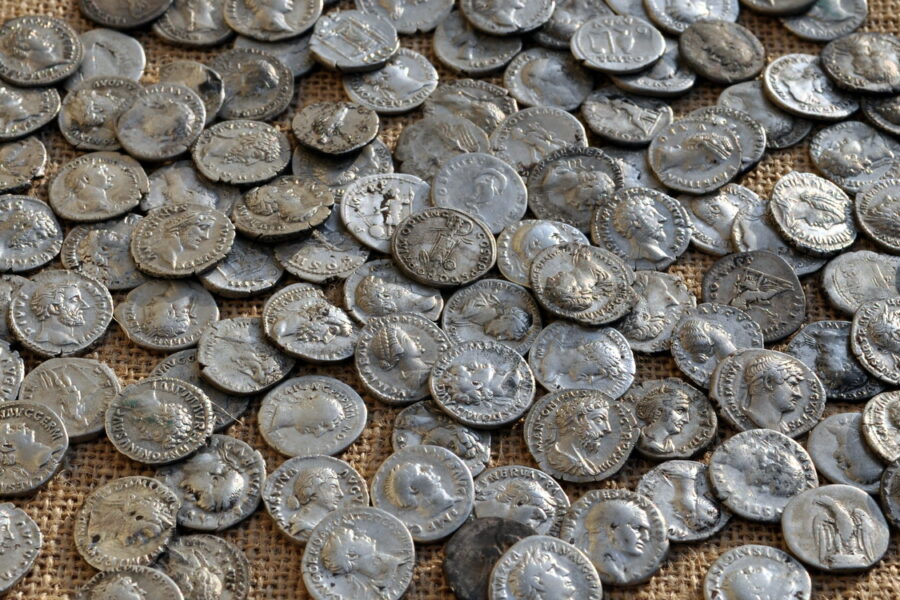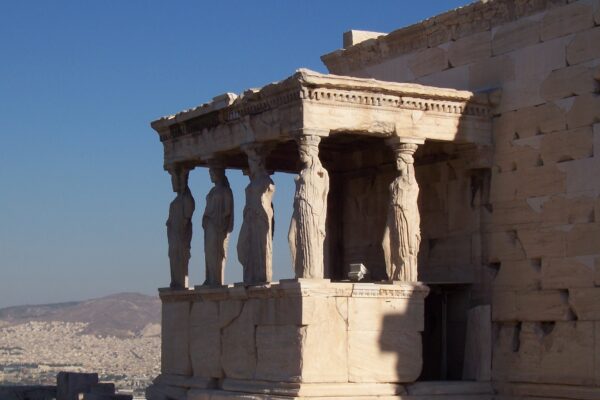
Benjamin Franklin once said “[I]n this world nothing can be said to be certain, except death and taxes.” Since our program already had a course on ancient death, we were inspired to add a course about ancient taxes…and all other things money related in Ancient Greece and Rome. And there’s a lot of things money related in Ancient Greece and Rome. Did you know that Ancient Greece was the first world culture to use widespread coinage? Or that the Roman Empire sub-contracted their tax collection to private enterprises, leading to such famously hated local tax collectors as St. Matthew in the Bible? Or that there were major trading routes between Roman Egypt and the Indian subcontinent? Or that Roman authorities ran a scheme for centuries, where they imported silk garments from what-is-now-China, pulled them apart and rewove them, and sold the new silk fabric back to the Chinese market as “Roman grown” silk?
CLAS-B 317 serves as an introduction to how the people of Ancient Greece and Rome conceived of and experienced money, trade, and finances. The goal of the course is to provide an easily accessible gateway to the Classical World, by way of an interesting and important area of research. By studying representative works of art, artifacts, and literature, you will explore topics including:
- the expansion of global trade networks in and beyond the Mediterranean world
- the role of commerce and manufacturing in ancient life
- the development of coinage
- how the ancient world affects modern conceptions of money
Most importantly, you will also learn to think critically about important questions: How did ancient Mediterranean societies conceptualize money and trade? How did such conceptions evolve and function within the specific context of the ancient Mediterranean world? What social roles did these concepts play? How did societies shape ideas of the financial forces that ruled their universe, and how did these ideas shape societies? How are issues related to money reflected in the literature and art of both ancient societies and our modern culture?
Fun Facts:
- 5 week, 1 credit “appetizer” class
- offered online asynchronous
- can be combined with other 1 credit “appetizer” classes
- no pre-reqs
- can be applied to the Classical Studies Minor
Coming Next: Spring 2027
Recent Offerings
spring 2025 (1st 5 wk)
- online asynchronous (Dr. Elizabeth Thill)


